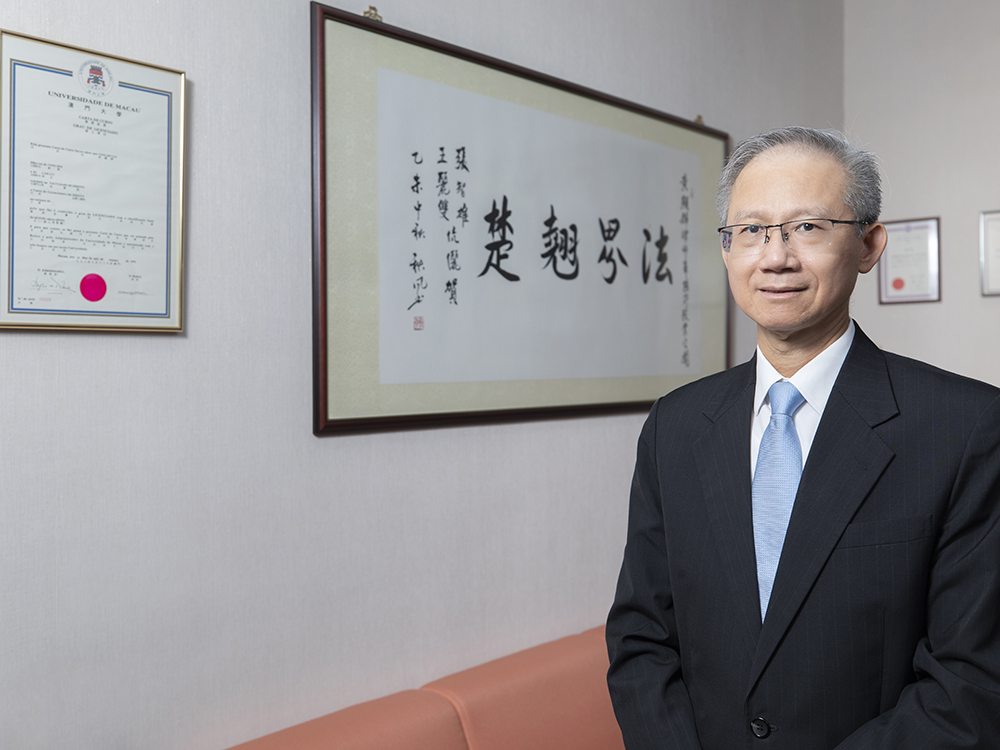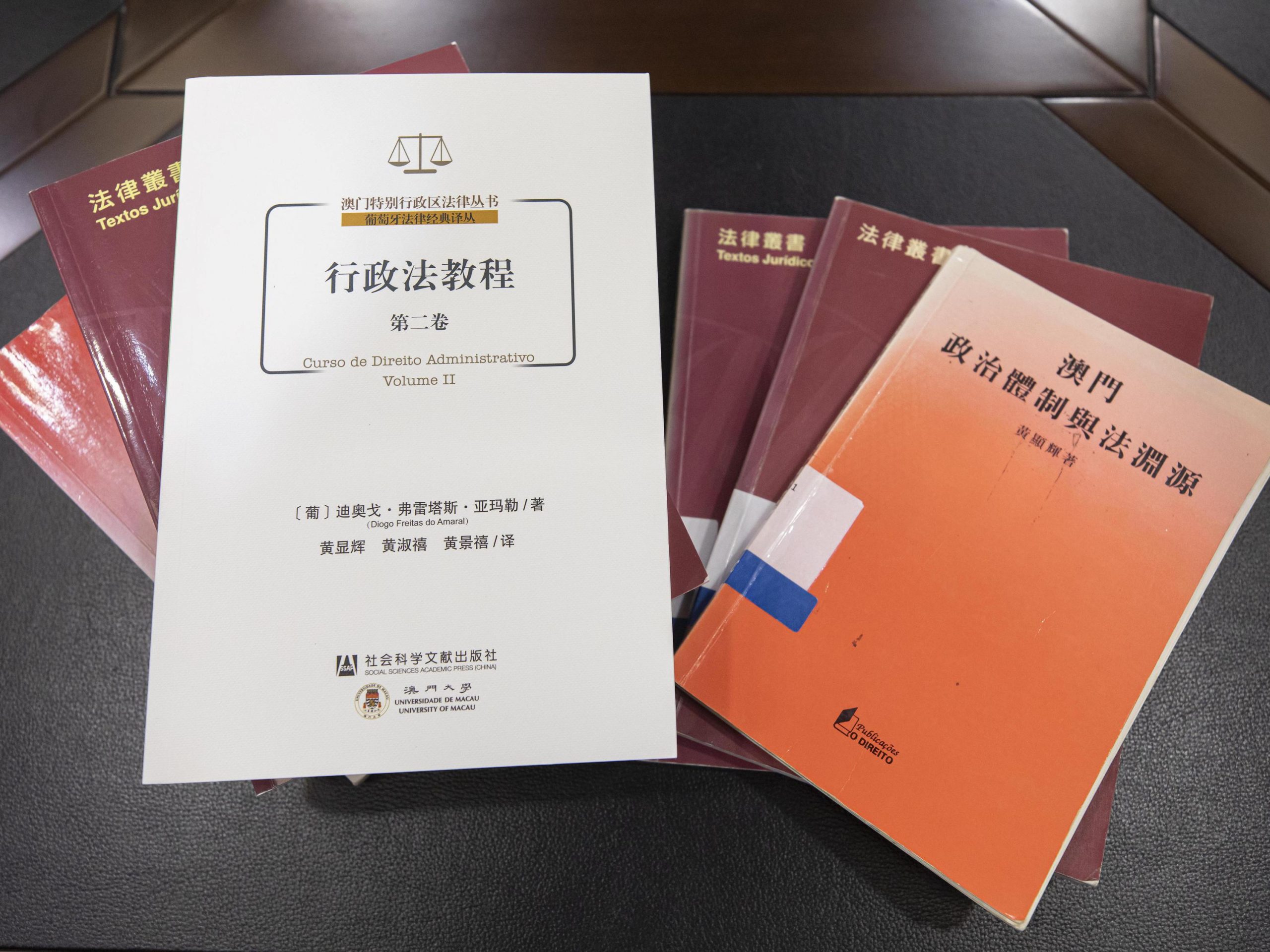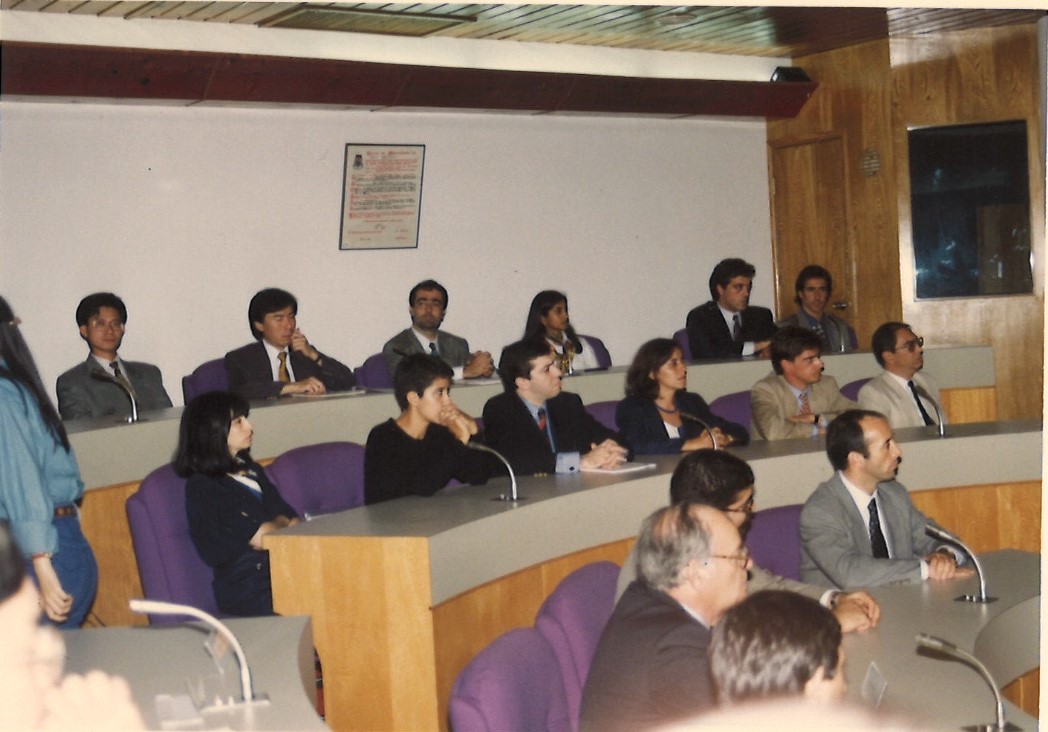University of Macau (UM) alumnus Vong Hin Fai is a legislator and the first locally born Chinese lawyer in Macao. When he was young, the local legal sector was drastically different: there were no Chinese legal professionals, and most laws were only available in Portuguese. When UM’s predecessor, the private University of East Asia (UEA), began offering a Bachelor of Law programme in 1988, it boosted the localisation of Macao’s legal system, and kicked off Vong’s legal career.
Knowledge Reshapes Destiny
Born in the 1950s, Vong is a graduate of the acclaimed Pui Ching Middle School Macau. His first job was an apprentice in a fishing boat repair factory. A few years later, he became a mechanic in the Maritime Administration, the predecessor of the Marine and Water Bureau. To the young Vong, a university education and a career in law were simply beyond reach. However, he believed that learning could change his life, so he spent nearly a decade studying Portuguese after work. Finally, he landed a job in the government as a Chinese-Portuguese translator.
In 1987, the Sino-Portuguese Joint Declaration on the Question of Macao was signed. The city entered a 12-year transitional period leading up to its return to China in 1999. At that time, Vong saw another opportunity to change his destiny. In 1988, Vong and several friends, who were also civil servants, enrolled in the UEA’s first Bachelor of Law programme taught in Portuguese.
Vong recalled the rationale for his decision: ‘When UEA began to offer programmes in law and public administration to train locals, my friends and I thought that we could seize this historic opportunity to get involved in the preparatory work for Macao’s return to the motherland.’ In the next five years, he worked in the government during the day and studied at UM in the evening. By the time he returned home every night, it was almost 11:00pm. But his busy day was far from over. ‘Back home, I still had to revise my class materials and look up the dictionary for new words,’ says Vong. ‘I usually went to bed at around one or two o’clock in the morning. And I had classes on Saturday mornings as well.’
A Challenging Start in the Law Programme
In the beginning, the law programme offered by UEA (which was acquired by the local government in 1988 and renamed University of Macau in 1991) was severely understaffed, with all the professors transferred from Portugal on a temporary basis. The lack of Portuguese textbooks was also a problem. Many titles were not available in local bookstores, so the students had to borrow the books from the Macao Central Library on weekends.
When studying law at the university, Vong, who had worked as a translator for some years, still found many Portuguese legal terms challenging. In the first and second years of study, he could barely understand his professors during the lectures. Apparently, he was not the only struggling. So he and his fellow students worked together to record the lectures and write notes from the recordings. ‘If we got a 50-minute recording, we would divide it into five parts, each to be handled by a student,’ Vong says. ‘The text would be revised by our Portuguese classmates. We had a good division of work. It was a difficult yet fulfilling experience.’
In his third year of study, Vong wrote Macao’s Political System and Origins of Law, the first-ever Chinese book on Macao’s legal system. With the encouragement and support of his professor Jorge Noronha e Silveira, who was later appointed Macao’s secretary for justice, he eventually published the book. Soon after Vong’s graduation in 1993, he was hired as a technical advisor by to the Legislative Assembly of Macao. He also took up a part-time teaching job for the practice-oriented courses under the Bachelor of Law programme, at the invitation of Prof Manuel Marcelino Escovar Trigo, then interim acting dean of the FLL.
Training Legal Professionals
Vong worked full-time in the FLL from 1994 to 1996. He helped UM launch its first Bachelor of Law programme taught in Chinese in 1996 and served as its founding programme coordinator. For the programme, which aimed to train a new generation of legal professionals for Macao, Vong and some other FLL alumni translated many Portuguese law textbooks into Chinese.
In 1996, Vong registered with the Macao Lawyers Association to become a practicing lawyer in the city. The first locally born Chinese lawyer in Macao, he has been practising law ever since, but remained a part-time faculty member of UM until 2007. Today, he is still closely linked to UM, serving as a member of the University Council since 2010, and a member of the Trustees Committee of the University of Macau Development Foundation.
Setting Sights on the Greater Bay Area
Vong praised FLL for having trained many trilingual (Chinese, Portuguese and English) legal professionals for Macao. In his law firm, most lawyers and trainee lawyers are UM alumni. Furthermore, FLL faculty members have researched extensively on the constitution of China, the Basic Law of the Macao SAR, the laws of Macao, the European Union law, and international law. In recent years, the faculty has established the Centre for Constitutional Law and Basic Law Studies.
Vong has served in various public positions to contribute to Macao and China. He is a member of the National Committee of the Chinese People’s Political Consultative Conference, the Committee for the Basic Law of the Macao Special Administrative Region under the Standing Committee of the National People’s Congress (NPC), and the Legislative Assembly of Macao. In view of the rapid development of the Guangdong-Hong Kong-Macao Greater Bay Area, Vong recommends that law students in Macao should learn more about the Greater Bay Area to prepare for their future.
In 2020, the NPC Standing Committee authorised the State Council to launch a pilot programme which allows legal practitioners from Hong Kong and Macao to practise law in certain legal areas in nine Greater Bay Area cities in Guangdong. Against this backdrop, Vong says: ‘Law students should of course learn Macao law well, and familiarise themselves with legal theories and judgments handed down by local courts. But at the same time, they should seize the opportunities to learn the laws of mainland China, so that they will be well equipped to practise law across the Greater Bay Area.’
Chinese & English Text / Davis Ip
Photo / Jack Ho, Editorial Board
Source: My UM ISSUE 104



